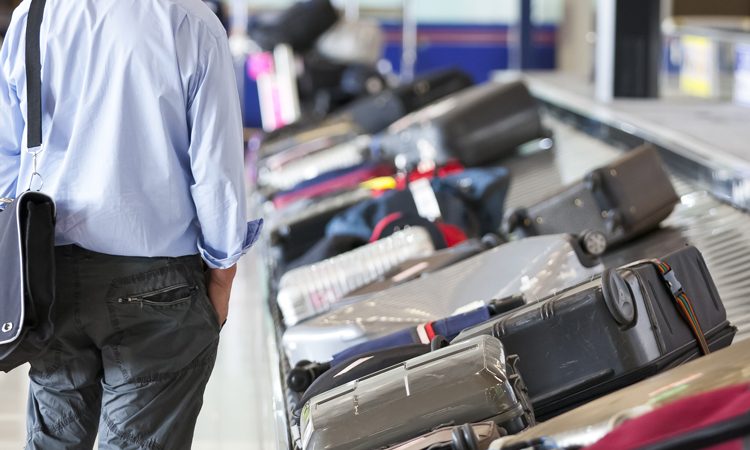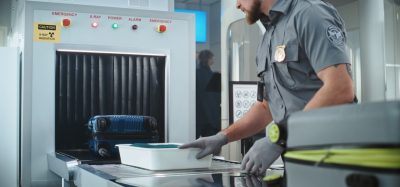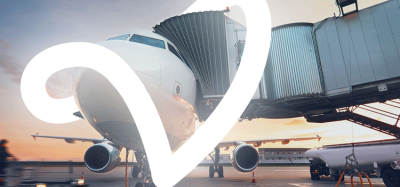Tracking bags has caused a 66 per cent improvement in baggage delivery
Posted: 26 April 2019 | International Airport Review | No comments yet
To improve baggage management many airlines and airports have introduced tracking at key points in the journey, including check-in, loading onto the aircraft, transfers and arrival.


The SITA 2019 Baggage IT Insights has highlighted how airlines that are adding tracking at more points of the baggage journey are witnessing a huge improvement in bag delivery globally.
Results showed that where tracking is done at check-in and loading onto the aircraft, the rate of improvement is as high as 66 per cent.
Over the past year, an increasing number of airlines and airports have started to introduce tracking at key points in the journey – check-in, loading onto the aircraft, transfers and arrival – to improve baggage management and further reduce the chances of a bag being mishandled.
Join us live: Shaping the Next Generation of Hold Baggage and Air Cargo Screening
Join us live for an insightful webinar on 11th December at 14:00 GMT, in collaboration with Smiths Detection, as we explore the strategic balance of operational efficiency, regulatory compliance, and sustainability in high-volume security environments.
This session offers a focused look into future-proofing your security strategy.
Key learning points
- Cost Reduction: Strategies to minimize bag travel time while simultaneously reducing operational costs.
- Regulatory Roadmap: Insights into the next wave of regulatory changes and their impact on future investment decisions.
- Sustainable Systems: Practical approaches to building sustainability into security systems and lowering the total cost of ownership (TCO).
- Scalable Solutions: Real-world examples of scalable systems supporting current airport growth and preparing for tomorrow.
Register now for expert insights, case studies, and actionable strategies on operational efficiency!
Peter Drummond, Director of Baggage at SITA, said: “While the mishandling rate has started to plateau over the past few years, this comes against a continued growth in passenger numbers and their bags. In 2018, 4.36 billion travellers checked in more than 4.27 billion bags. More bags makes things more challenging. Everyone across the industry needs to look beyond the process and technology improvements made in the past decade and adopt the latest technology such as tracking to make the next big cut in the rate of mishandled bags.”
Transferring baggage from one aircraft, or airline, to another remains a pinch point in the journey and in 2018 it was again the main reason for bags being mishandled. Transfer bags accounted for 46 per cent of all mishandled bags.
Ahmed Juma Al Shamsi, Acting Chief Operations Officer at Abu Dhabi Airports, said: “For our passengers the timely delivery of baggage is key to ensuring a seamless passenger experience and therefore an area in which we continue to make further improvements. Looking forward, baggage tracking is fundamental to driving more accurate bag delivery not only at Abu Dhabi International Airport but across the entire passenger journey. We have led the way with the introduction of tracking on arrival and we have already seen significant improvements.”
Over the past decade, the total number of mishandled bags per annum has plummeted 47 per cent from 46.9 million in 2007 to 24.8 million in 2018, while the annual bill footed by the industry has shrunk by 43 per cent to $2.4 billion, down from $4.22 billion in 2007.
Drummond added: “Transfer is by far the most difficult stage to track a bag as there are multiple airlines and airports involved. However, data from this year’s report shows that tracking at key points in the journey, such as transfers, will go a long way to eliminating mishandling and will allow airlines and their passengers to keep tabs on where their bags are at every step of the way.”
Join our free webinar: Beyond silos: How ecosystem thinking elevates the airport experience
In today’s complex aviation landscape, airports are moving beyond siloed operations to embrace a new era of collaboration. This webinar focuses on how leading airports are using ecosystem thinking to adapt, personalize, and continuously improve every touchpoint, boosting both passenger satisfaction and non-aeronautical revenue.
Date: 13 Nov | Time: 10:00 GMT
REGISTER NOW TO SECURE YOUR SPOT
Can’t attend live? No worries – register to receive the recording post-event.
Related topics
Airside operations, Baggage handling, Passenger experience and seamless travel, Terminal operations


















